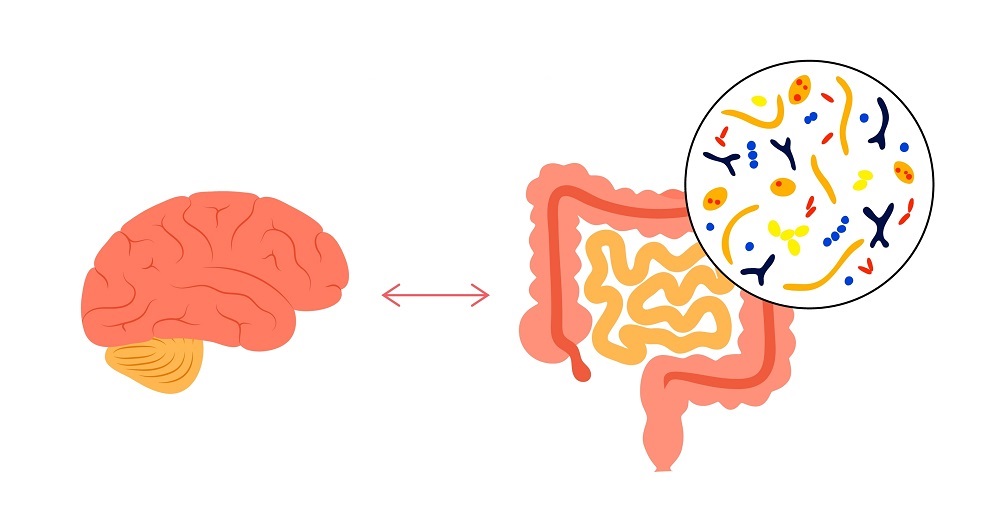
Nutrition for Longevity: Key Strategies to Support a Longer, Healthier Life


The path to a long and healthy life is not solely a matter of luck. Several variables, including genetics, lifestyle choices, and environmental factors, work together to determine your lifespan. One of the most powerful ways to influence how we age is by choosing what we eat carefully: nutrition for longevity. Research shows that nutrition has the potential to increase lifespan. By focusing on a diet designed to promote healthy aging, you’re investing in your future well-being.
The foods you eat can powerfully shape your body and mind. They can also cultivate a vibrant, sharp mind, supporting your cognitive well-being for the long haul. And, the sooner you embrace a strategic diet, the better your shot at a longer, healthier life.
How do you focus on nutrition for brain health? Here’s what you need to know to enhance nutrition for aging adults, help maximize cognitive performance, and invest in your vitality as you age—all by what you put on your plate.
Nutrition for Longevity and Healthy Aging
A diet that optimizes nutrition for brain health and cognitive performance has powerful “value for improving cognitive functioning, particularly during aging.”
Such diets are also associated with reduced risk of disease and improved health which, in addition to enhanced brain function, are essential components of a long and healthy life.
Excellent nutrition is fundamental, but it isn’t always easy to determine what to eat, how much, and when. Because nutritional needs change as you age, it’s even more important to stay on top of the nutrient profile of your diet, ensuring you design a diet with nutrition for longevity and brain health.
What Longevity and Healthy Aging Really Mean
Longevity refers to the duration of a person’s life, especially when compared to the average lifespan of the population. Regardless of your background, the desire to live a long life is a universal goal that unites people from all walks of life.
To enhance your longevity, it’s necessary to build habits aimed at prolonging your lifespan by adopting a healthier lifestyle, avoiding harmful habits, accessing proper care, and making informed choices about what you eat.

Building a Longevity-Focused Diet for Healthy Aging
A longevity-focused diet involves strategic decisions that prioritize key nutrients and compounds with proven associations to extend your lifespan. This means incorporating the following key nutrients that sustain your well-being.
Key Nutrients and Foods for Longevity
Antioxidants stand as defenders against the detrimental effects of oxidative stress, a phenomenon associated with cellular damage and aging. Research shows that “several approaches to improve human health and achieve longevity use dietary antioxidants” such as:
- Vitamin C
- Vitamin E
- Beta-carotene
- Selenium
- Manganese
- Glutathione
- Coenzyme Q10
- Flavonoids
These nutrients help to neutralize free radicals and reduce the risk of chronic disease. For brain and body health, antioxidant-rich foods such as nuts, seeds, fruits, and vegetables can help to create a shield against the wear and tear of time.
Longevity Foods: Omega-3 and Healthy Fats
Omega-3 fatty acids have emerged as potent players in promoting longevity because of their “anti-inflammatory and immune-modulating” properties. Sources of omega-3s include:
- Fatty fish, such as salmon, mackerel, tuna, or herring
- Flaxseeds
- Chia seeds
- Walnuts
- Plant oils, including flaxseed oil and soybean oil
- Fortified foods like yogurt, juice, cow’s milk, and soy milk
Increasing age is a “risk factor associated with chronic inflammation,” which is also related to a host of age-related conditions, including cognitive decline. Omega-3s help to mitigate the effects of chronic inflammation and significantly support cognitive function.
Plant-Based Foods That Promote Healthy Aging
Found abundantly in fruits, vegetables, herbs, and spices, plant-based compounds are powerhouse nutrients with an array of benefits for extending your lifespan. Studies show that “replacing meat-based foods with plant-based products will provide many valuable compounds” for a diet that “not only provides the necessary nutrients but also can help in the prevention of many diseases.”
A diet with a diverse range of plant foods can help you harness the power of nature’s longevity-boosting compounds, including:
- Fruits
- Vegetables
- Whole grains
- Nuts
- Seeds
- Beans
- Legumes
Plant-based compounds like polyphenols, for instance, have been associated with improved cellular function and reduced risk of disease.
Optimizing Nutrition for Longevity and Vitality
Just like a well-tuned machine needs high-quality fuel to perform optimally, your brain relies on a specific nutritional blueprint to achieve peak cognitive performance. More than satisfying hunger or watching your figure, your diet can influence your brain health by supporting memory, focus, attention, and overall cognitive abilities.
Enter: “‘brain foods’—foods that can help optimize mental performance.”
Nutrition Strategies to Support Healthy Aging
These nutrients not only act as formidable defenders against the markers of cognitive decline, but they also help to bolster your cognitive abilities and mental health over time.
B-Vitamins: Neurotransmitter Powerhouses
The group of B-vitamins, including thiamine (B1), pyridoxine (B6), and cobalamin (B12), are key players in supporting neurotransmitter synthesis. Neurotransmitters, chemical messengers that facilitate communication between nerve cells, play a pivotal role in cognition, mood, and memory.
A few examples of healthy foods high in B-vitamins include:
- Black Beans and Lentils
- Eggs
- Milk and Yogurt
- Oysters, Clams, and Mussels
- Pork, Chicken, and Beef
- Salmon and Trout
- Spinach
Essential Minerals and Compounds that Support Healthy Aging
Minerals such as magnesium, potassium, calcium, and zinc play vital, multifaceted roles in supporting brain health, many of which are “reported to be protective against cognitive decline.” These nutrients help to regulate brain activity, consolidate memory, uphold structural integrity, and transmit signals around the brain and body.
A few examples of healthy foods high in essential minerals include:
- Avocados
- Berries
- Broccoli and Watercress
- Cocoa
- Nuts and Pumpkin Seeds
- Pineapple and Passion Fruit
- Sweet Potatoes
- Yogurt and Cheese
Supporting Longevity Through a Balanced Diet
The link between the gut and the brain, known as the gut-brain axis, is a revelation that reshaped our understanding of cognitive health. It highlights the interplay between the gastrointestinal system and brain function and reveals how the state of the gut can powerfully influence mental well-being.
The gut-brain axis is a dynamic, “bidirectional communication network that links the enteric nervous system” of the gut with the central nervous system of the brain. This connection hosts constant information exchange that impacts both digestive processes and cognitive responses at the same time.
How does this come into play? Research indicates that disruptions in this axis can contribute to mood, neurological, and cognitive decline.
The Role of the Gut-Brain Connection
A diverse community of microorganisms that resides in the digestive tract, called gut microbiota, plays a central role in modulating brain function. Ultimately, they’re “essential for brain processes” that regulate brain behavior and overall health.
When this community is imbalanced, a condition called dysbiosis, it can lead to conditions like anxiety, depression, and cognitive impairments. Achieving this balance, and helping to avoid these conditions, is accomplished largely through a diet focused on nutrition for longevity.
Healthy gut microbiota help reduce inflammation in the body as well, which in turn benefits brain health. Neuroinflammation, “a potential mediator of cognitive impairments,” is associated with a decline in brain health. A balanced gut microbiome is one powerful way to invest in your short-term health as well as your longevity.

Adapting Nutrition for Healthy Aging
Aging comes with internal and external transformations, and these changes come with shifting needs for a healthy body and mind. It’s common to experience changes in appetite later in life through a general decrease in hunger cues, caloric needs, or shifts in meal preferences. Dietary guidelines change as well, as studies show that older adults are at a greater risk of chronic diseases such as:
- Heart disease
- Cancer
- Cognitive decline
- Loss of muscle mass
- Osteoporosis
When combined with other age-related changes in metabolism and the body’s ability to absorb nutrients, this can potentially result in nutrient deficiencies. Fortunately, a healthy diet can help to mitigate these risks.
Practical Diet and Nutrition Tips for Aging and Longevity
Meeting the changing demands of aging involves adapting to the shifts with adjustments aimed at fulfilling your nutritional requirements. Here are several ways you can modify your diet to promote healthy aging:
Protein and Longevity: Supporting Healthy Aging
Protein “plays an important role in the health of older adults” and is crucial for preserving muscle mass and supporting health. Incorporate lean sources of protein such as poultry, fish, beans, and legumes into meals and snacks to ensure adequate intake. Protein smoothies that blend Greek yogurt, fruits, spinach, and a scoop of healthy protein powder provide a protein-rich breakfast or snack.
Fiber and Healthspan: Key Considerations
Fiber aids digestion, promotes a healthy gut microbiome, and helps manage your weight. It has “even been shown to reduce inflammation in the body.” Whole grains, vegetables, fruits, and legumes are sources of healthy fiber. Aim to get more fiber through fiber-rich snacking from nuts, seeds, and dried fruits.
Hydration and Healthy Aging
Dehydration risk rises with age “due to lack of thirst sensation and changes in water and sodium balance.” Hydration needs also change with age. To stay hydrated, set alarms or use mobile apps to remind yourself to drink water. You can also include hydrating foods in your diet, such as low-sodium soups, fruits, and vegetables.
Intermittent Fasting for Older Adults
Under proper guidance, intermittent fasting, or time-restricted feeding, can help manage weight and improve metabolic health. Research shows that periods of intermittent fasting are “accompanied by positive effects on risk factors for aging, diabetes, autoimmunity, cardiovascular disease, neurodegeneration, and cancer.” Different types of intermittent fasting involve eating and fasting windows to encourage these benefits.

Longevity Diet Patterns for Healthy Aging
The MIND (Mediterranean-DASH Diet Intervention for Neurodegenerative Delay) diet combines elements of the Mediterranean and DASH diets, focusing on foods that support brain health. This means prioritizing vegetables, berries, whole grains, nuts, olive oil, fish, and poultry while minimizing red meat, butter, sugary foods, and fried foods.
Personalized Nutrition for Longevity With Aviv Clinics
Nutrition is an important pillar in your approach to health, especially as you age. Investing in nutrition for longevity is one of the most impactful ways to support healthy aging. At Aviv Clinics, our multidisciplinary Aviv Medical Program can include a personalized nutrition plan based on a comprehensive assessment to address your individual needs and goals. Nutrition counseling is often recommended alongside hyperbaric oxygen therapy, physical training, or cognitive training to help optimize your health as you age.
Discover how a customized nutrition plan can complement your overall wellness strategy and help you maintain vitality for years to come. Contact Aviv Clinics today to schedule a complimentary consultation and take the first step towards a longer, healthier life.
Last Updated: November 26, 2025








